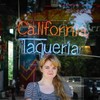Over the weekend, many powerful world leaders condemned Donald Trump's executive order restricting citizens of seven Muslim-majority countries—Iraq, Iran, Syria, Somalia, Sudan, Libya, and Yemen—from entering the United States. That sentence felt a little surreal to type. Is this really happening? Yes. Wow. Okay.So, while the likes of British foreign minister Boris Johnston, German chancellor Angela Merkel, and French President Francoise Hollande have all criticised Trump's order (for various reasons, including but not limited to the fact an immigration ban will likely encourage Islamic extremism rather than curb it, and that none of the countries included within the ban have citizens affiliated with terror attacks on US soil), the Australian Government has remained relatively silent. Don't expect that to change.Prime Minister Malcolm Turnbull has yet to comment on the issue, while Foreign Minister Julie Bishop—currently in Los Angeles at a conference promoting Australian tourism—has commented that the government will support Trump's "strong immigration and border protection policies.""I'm confident that the Australian government and the US government will continue to support each other in ensuring that we can implement our strong immigration and border protection policies," Bishop said at the conference.Bishop also offered some reassurances that the Department of Foreign Affairs and Trade (DFAT) would help Australians citizens who suddenly found themselves unable to travel to the United States. It became evident on Sunday that Australians who hold dual citizenship with any of the seven countries will likely face US immigration restrictions."The Australian government is working very closely with the administration and the US officials and we want to ensure that Australians continue to have access to the United States, as they have in the past, and people from the United States have access to Australia," Bishop said.Overnight, the United Kingdom managed to secure exemption for UK dual citizens who hold passports from the seven countries. Dual nationals from the UK will only face issues if actually travelling from the seven countries under the ban—if they try and enter the US from anywhere else, including the UK, they're fine. It's unknown at this stage whether DFAT will negotiate a similar deal for Aussies.Qantas has responded to the immigration freeze by offering refunds to passengers block from entering the US because of the ban.Opposition Leader Bill Shorten jumped on Twitter to express distaste for the ban, saying, "Australia has had a non-discriminatory immigration policy for more than four decades. It's made us stronger… We don't just tolerate diversity, we embrace it. We are the home of the fair go for all. All races, all faiths, all cultures." Shorten's tweets didn't mention Australia's controversial offshore processing system for refugees and asylum seekers on Manus Island and Nauru, which has been widely condemned by NGOs and the UN.Speaking of Nauru and Manus Island, it would appear Trump will honour the refugee resettlement deal struck by the Obama Administration and Turnbull Government. Despite the fact many of the refugees held in these camps are from Iraq and Iran—both countries affected by Trump's executive order. The deal was struck back in November 2016, dictating all "genuine" refugees from our offshore detention facilities on Nauru and Manus Island be resettled in the US. The announcement was made only days after Donald Trump's shock election win, and the timing raised some concerns.A lifetime ban on refugees sent to Manus or Nauru after 19 July 2013, which was proposed by the Turnbull Government late last year, will be debated in the Senate after parliament resumes on 7 February, 2017.Follow Kat on Twitter
Advertisement
Advertisement
